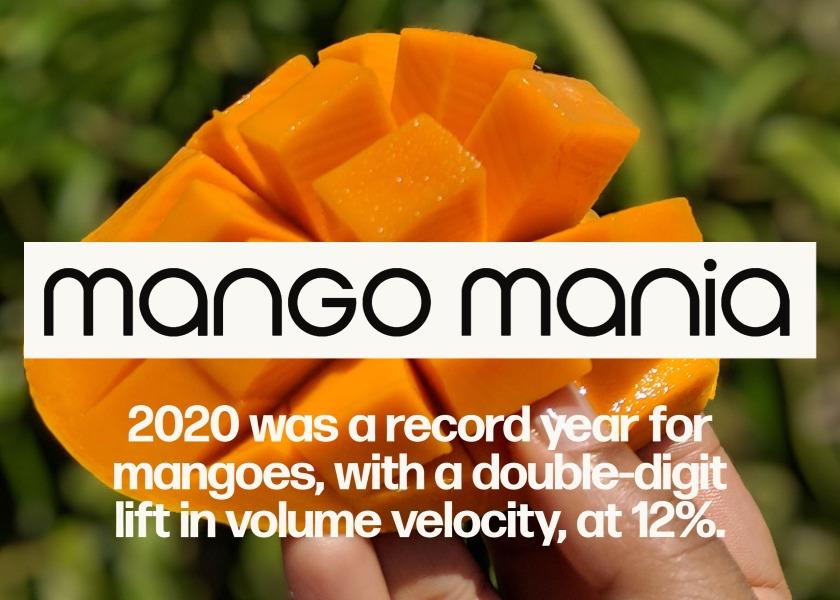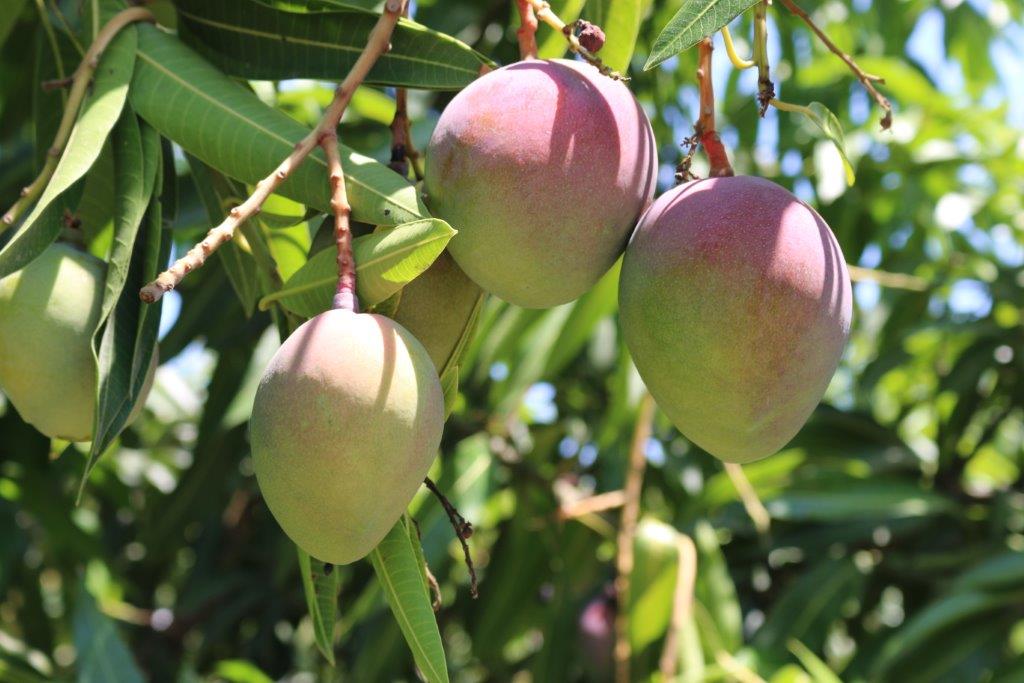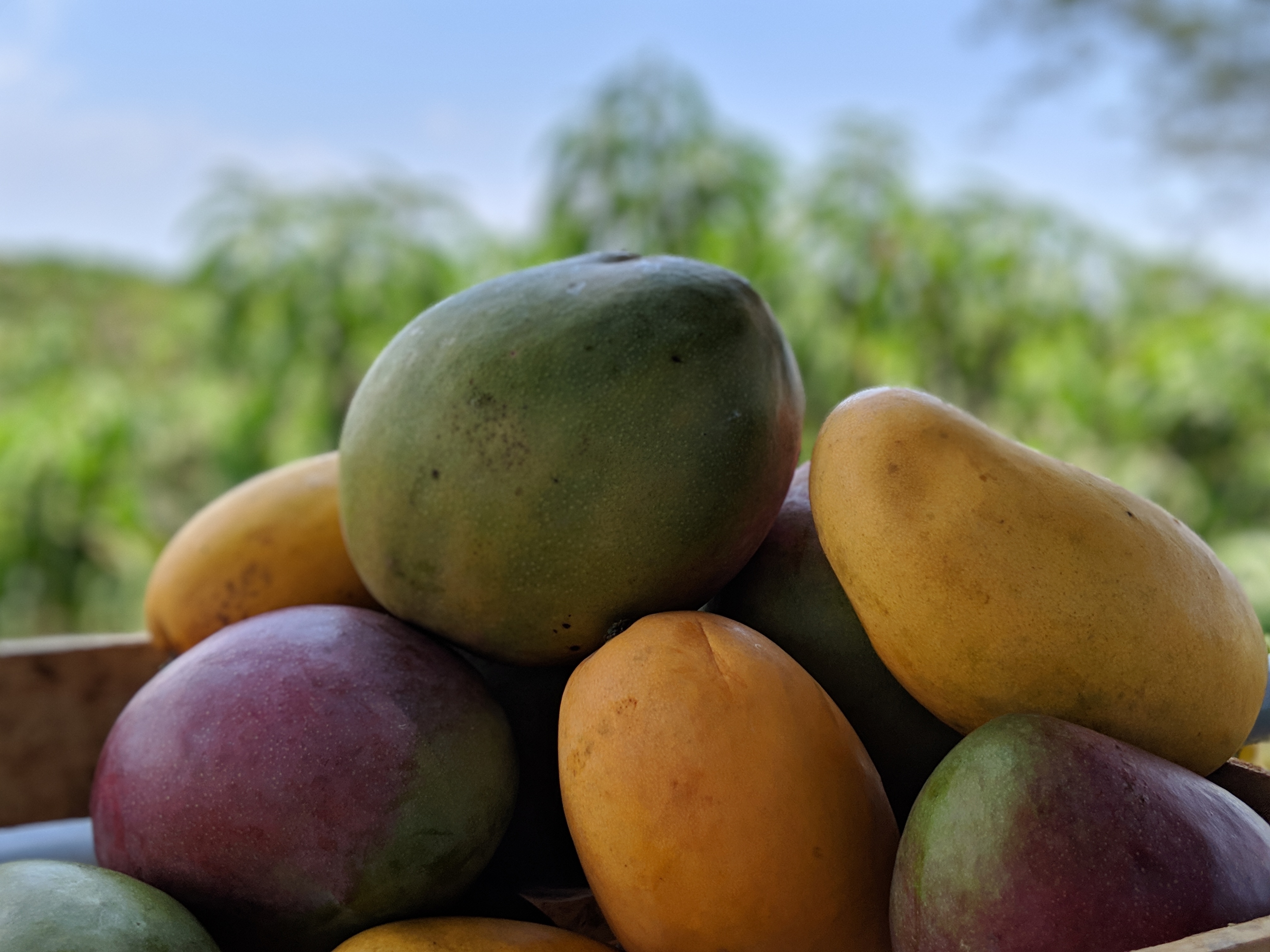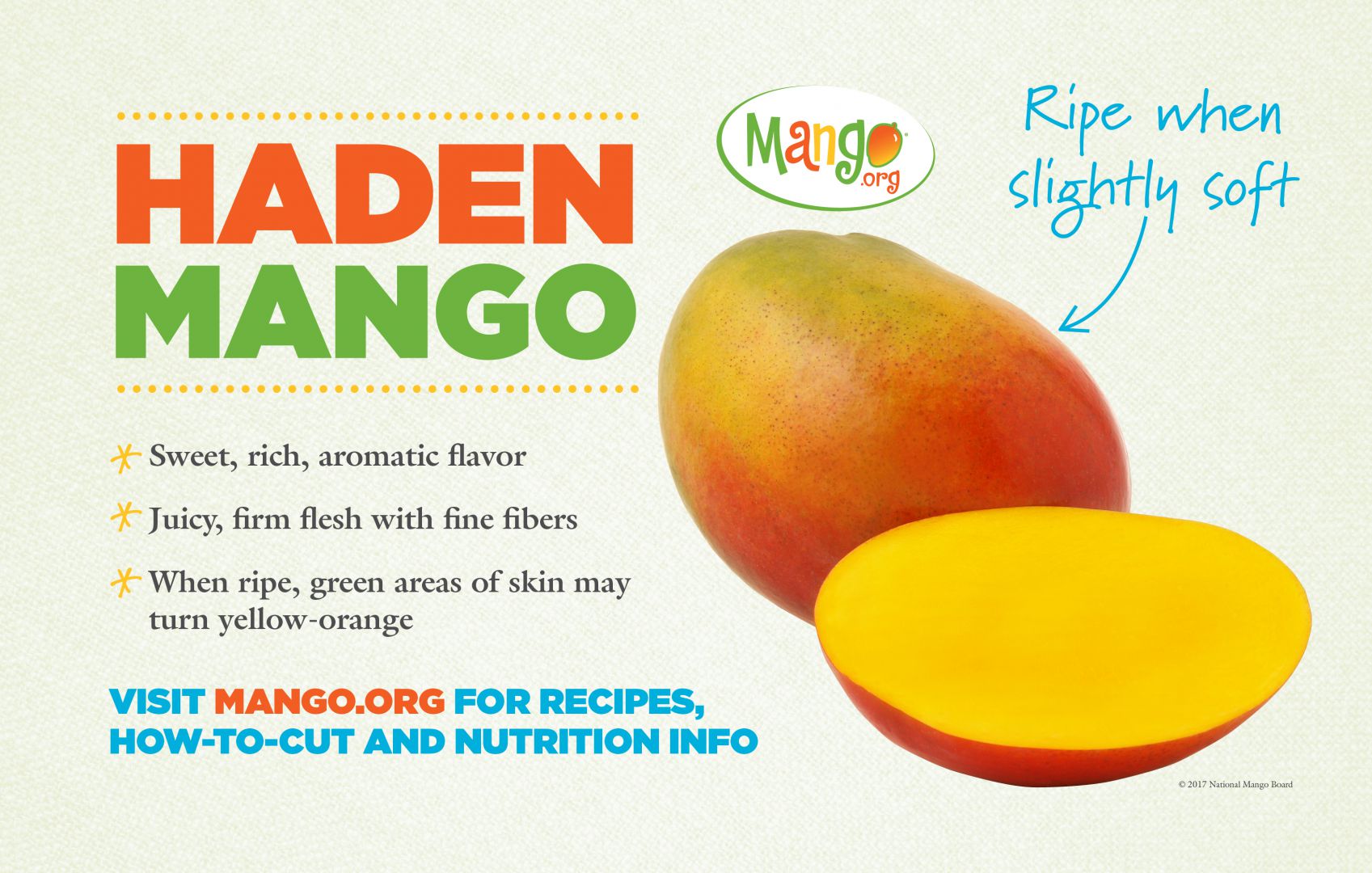Mango mania is real

The mango mania is real.
2020 was a record year for mangoes, with a double-digit lift in volume velocity, at 12%, according to the National Mango Board. And whole-mango dollar velocity was up 19% year over year.
For 2021, especially as U.S. imports shift from Central America to Mexico in late spring, the board is expecting mango shipment volumes to be about 16% higher from last year, said Rolff Mitton, research manager. “Keep in mind, this is when COVID-19 hit last year, and we saw a major drop then,” he said. “This year is more like back to normal compared to 2020. But compared to the last five years, we usually have a 3-5% increase in volume shipped to the U.S.”

For the next eight weeks after mid-April, mango shipments should be about 27 million boxes, which are traditionally 4 kilograms or 8.8 pounds, he said. That’s four million more boxes than the 23 million in same time period last year.
But Michael Warren is part of a change in mango-packing tradition. He’s transitioning to shipping with larger five-down boxes that are 22-24 pounds, instead of the standard 14-down boxes that are 8.8 pounds. These larger boxes ship better with less delivery failure, have holes for vertical and horizontal air flow, and are great for larger displays at retailers, where mangoes are moving from small exotic fruit sections into the larger mainstream spots.

“We’re looking to see more chains jump on that. But I don’t see the old format going away,” said Warren, president of Pompano Beach, Fla.-based Central American Produce and its CAPCO Farms brand. “That’s still a box in good demand, especially for independent stores, smaller stores like in the Northeast and club stores that sell them by the box.”
Central American Produce also adjusted the more traditional box, making it a 15-down box equivalent to an 8.8-pounder, by standing the mangoes up straight. “We redesigned the box to maximize the efficiency of air flow, which is better for pre-cooling at facilities before they ship,” Warren said. “It’s better for ripening rooms, and it stacks very nicely so it ships better. Over the last year, we’ve shifted a lot of our shippers into this; in the next year, we expect most of our shippers will be into that box.”
According to a 2016 mango board report, the older, smaller boxes don’t stack well with other produce boxes and can damage other commodities when mixed pallets are consolidated. Pallets with smaller-size boxes are also less stable, fall over more often and don’t hold up as well with the humidity in ripening rooms.
Demand has been great for mangoes, Warren agreed, but supplies have been moderate. “There’s enough to go around, but there’s definitely not a surplus,” he said. “We expect we’ll see that into May.”
Central American Produce imports from Guatemala, Costa Rica and Nicaragua should wind down by the end of May, when imports shift into Mexico, moving north. In mid-April, the company was importing from growers in Oaxaca, Michoacán and Chiapas, Mexico.
A lot of the early rains curtailed the March volume, said Chris Ciruli, chief operating officer of Rio Rico, Ariz.-based Ciruli Bros. Ciruli Bros. began packing earlier than last year, but volume has been lighter since the start of the season compared to last year. “We are hoping that volume will pick up as the season continues to progress,” he said. Ciruli said he expects volume to pick up in May, June and July as import regions expand to Mexico’s Nayarit and Sinaloa, while mango sizes could be smaller. “Ciruli Bros. also plans to continue shipping mangos well past the Mexican mango season, with fruit imports from Ecuador and Peru, for year-round mango supplies,” he said.

High freight rates have been a challenge in the first two quarters of 2021, with very short supplies. Movement and promotions rose in March and April with retailers, a trend that carried through from last year.
While mangoes are available to U.S. consumers year-round, promotions really ramp up in spring and summer. Of course, mango marketers will encourage everyone to celebrate Cinco de “Mango,” a play on the May 5th holiday — “something fun we’ve coined,” said Jessica Bohlman, mango board communications manager. “It’s a great time to celebrate Mexican culture.”
The board will also promote the fruit’s two holidays: June is National Mango Month and July 22 is National Mango Day. The pandemic of the past year has encouraged the board to target its audiences more specifically and home in on the nutritional benefits of mangoes, the more than 20 vitamins and minerals, including vitamin C.
Board staff will continue to focus on health, as well as the basics of selecting and cutting a mango, and how to incorporate mangoes into summer grilling. The goal is to encourage customers and consumers to think outside the usual smoothie recipes for mangoes. Mangoes are great in sauces, said Tricia Bramley, board director of marketing.
“We’re going to have a saucy summer with mangoes. It tastes amazing on a wide array of things from the savory to the sweet side,” Bramley said. “We’re working on education of the versatility of this, to show them there are ways to expand what you think mangoes are for.”







